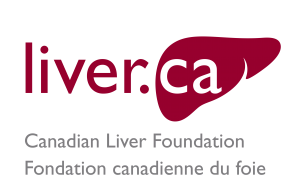Hepatitis C: This is Your Warning
Hepatitis C. A serious liver disease that comes without warning.
Hepatitis C is referred to as a “silent disease” because people infected often don’t show signs of illness. There are an estimated 250,000 Canadians living with hepatitis C and up to 44% of those infected don’t know they have the disease. They could be your neighbour, your co-worker, your friend, a family member – or it could be you.
Could you have it?
Complete the online viral hepatitis questionnaire in English, French or Chinese to find out. You could also complete, print and bring this hepatitis C risk assessment quiz to your next doctor’s appointment and discuss hepatitis C testing with your doctor.
Should you get tested?
Those born between 1945 and 1975 have the highest rate of chronic hepatitis C infection, but only 7 percent are aware of their increased risk. The hepatitis C blood test is simple and covered by all provincial health care plans.

Other people who are at risk and should get tested include:
- Those who were born or have lived in Asia, Africa and Eastern Europe
- Intravenous drug users
- People who get piercings or tattoos
- People who have been in prison
- People who had blood transfusions, blood products, or organ donations before 1990
If you were born between 1945 and 1975, or any of the above sounds like you, ask your doctor for the one-time hepatitis C test.
Hepatitis C doesn’t come with a warning.
As common as hepatitis C is, it’s a disease that rarely comes with a warning. Unlike many other contagious diseases, hepatitis C has no obvious signs when it’s passed to someone. Therefore, those infected rarely know they have it.
Often times, people who are infected with hepatitis C will feel symptoms that can be easily confused with a cold or flu, or just being run down. These include:
- Fatigue
- Low energy
- Reduced appetite
- Sore muscles and joints
- Nausea
- Abdominal pain
- Jaundice (a yellow look to the whites of your eyes and skin)
If you notice any of these signs, it’s important to speak to your healthcare provider as soon as possible. Undiagnosed and untreated, hepatitis C can lead to a variety of serious health issues including cirrhosis, liver failure, liver cancer or even death.
Meet Maryann

“I had no idea how fortunate I was to receive a diagnosis when I did, I never had any obvious signs, you really couldn’t tell. The physical and emotional impact my journey had from diagnosis to treatment tremendously affected me and my family.”
Getting tested is a step towards getting cured.
There have been huge strides made in treating and curing hepatitis C. In up to 99% of cases, successful treatment and cures can be expected. However, the key to winning the battle against this disease is to get tested.
The Canadian Liver Foundation is committed to eliminating hepatitis C in Canada.
Incredibly, 30 years ago, hepatitis C didn’t even have a name. Now, it’s easily diagnosed with a simple blood test, treated and cured in most cases. If you haven’t already, get tested for hepatitis C and know your status. Let’s make hepatitis C a thing of the past.
To learn more about Hepatitis C visit our Hep C Resource Centre.
The Canadian Liver Foundation proudly supports the Canadian Network on Hepatitis C and the hepatitis community groups across the country that have collectively established and presented the Blueprint to Inform a Hepatitis C Elimination Strategy in Canada. This Blueprint can guide our provinces and territories towards reaching elimination of Hep C in Canada! Click here
The Canadian Liver Foundation acknowledges Gilead Sciences Canada for their support of the CLF’s mission of “bringing liver research to life” to benefit the liver health of all Canadians through research, education, patient support and advocacy.


